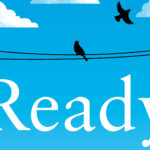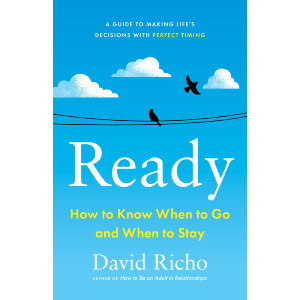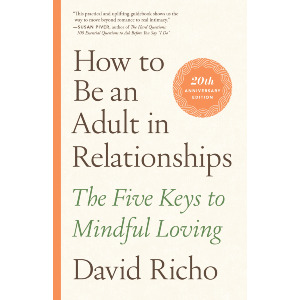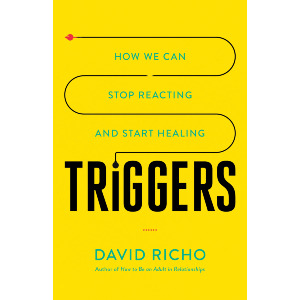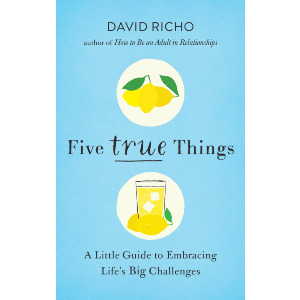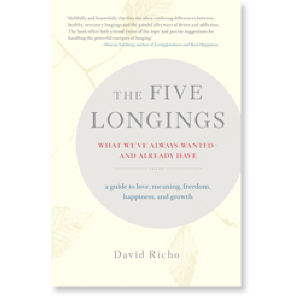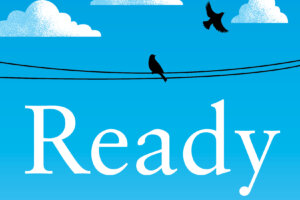
As you left their voice behind
The stars began to burn
Through. . . . —Mary Oliver, “The Journey”
Our inner critic is the part of us that has given up on us. It hurls “can’ts” and “shoulds” at us: You can’t go. You can’t make it alone. You should stay put. The inner critic is a mindset, usually from the past; it’s something we learned, not something we were born with. It is an echo from people and institutions who judged us in the course of life. They include family, peers, religion, school, society. This mindset is now internalized and part of our mental apparatus. Most of us have internalized some shaming messages from our past. The inner critic most often has the voice of the scolding parent. This voice takes on a life of its own in us, so we think we are hearing our own accurate assessment of ourselves. But we are actually listening to a skilled ventriloquist. Yet, there is good news. Since the critic now exists only in our heads, we can change the message we hear. We can input the voice of a nurturing parent or kindly coach instead, one who says what encourages us and bolsters our self-esteem. We can hear in our mind what we wanted to hear from our original parent. We might also hear what our parent or any supportive person in our lives has said. Nurturance can be described as a caring that is shown by the five A’s—sources of joy too!
We can tame or silence the inner critic—this enemy within who tells us we can’t move, can’t make an accurate assessment or a wise choice, that we have no options. We do this not with a whip but with gentle coaxing of the negative voice onto the channel of self-advocacy. Free of self-deception we might say to ourselves: “So much of what I hear from myself is not really me. I allow my supportive voice to have a say.”
One inroad into the posture of the inner critic is noticing that the voice always sounds final: this is who you are and all you are. It is absolute in its verdict: you are nothing but guilty or weak or inadequate. It is not provisional. It is not open to discussion, to solutions, to alternatives—exactly the style that can keep us stuck. Indeed, an inner critic abhors the idea of a journey; it wants only to keep us immobile, unevolving. In other words it is nothing less than the bully of fear. This is why it can’t be right in what it whispers to us. The inner critic is on the side of self-reproach, self-abnegation, self-negation, self-loathing. It does not love us. Likewise, the inner critic moves from one particular experience to a deadly generalization. “She doesn’t like me” becomes “I am unlikable.” Thus, what happened today becomes tomorrow’s decree. The inner critic is the heretic who denies the Buddhist teaching on enlightened liberation being available to everyone all the time.
Six Practices to Change the Inner Critic into an Inner Ally
Here are some ways to reset our inner critical voice into one of self-advocacy. Choose any one or try one each day:
Moving from Past to Present
List three negative messages from your inner critic in your journal. Connect each statement to its origin, usually in early life. Was it appropriate then? Is it appropriate now? What shame did you feel? Where did you first hear this? Who said it? Were they trying to help or hurt you? Do this without blame for anyone but only as an accessing of information.
Moving from Always to Sometimes
Notice if the inner critic’s vocabulary is absolute: You always . . . You can’t ever . . . Under the absolute statement write a more inclusive one. Don’t deny the main point but only reduce it from absolute to relative: “Yes, I often can’t . . .” and “Sometimes I can . . .” Now you are changing a negative verdict against you into a neutral fact about all of us. You are reminding your inner critic—that is, yourself—that inadequacy is a feature of being human. It is a given that all of us sometimes make mistakes, act inappropriately, fail. Let yourself thereby feel a kinship with all other humans. Remind yourself that you also are committing yourself to do what you can to make up for your failings—all that really matters. As Joe Biden said at the 2020 Democratic Convention: “Failure at some point in life is inevitable but giving up is unforgivable.”
Mindfully Breathing
Place the message of the inner critic into a mindfulness container: Sit with the statement and shear it of judgment, shame, belief, insult, triggering. Let it become only words in your head and label them as such. Do all this as you keep coming back to your breaths, lifelong teachers of taking in and letting go.
Showing Self-Compassion
The inner critic disregards the pain it causes us by its put-downs. It does not seem to care about how our feelings are hurt, how our self-esteem is diminished. We can, however, step in and show self-compassion as the antidote to its judgments. We are actually helping our inner critic become compassionate. Our practice also extends to the inner critic in us that judges others, whether internally or vocally. In that area too, we convert judgment into compassion. Everything we judge others for has some kind of pain behind it. Our practice is to look for the pain the other might be feeling in doing what we believe is wrong. For instance, we judge someone as controlling. Behind that behavior there can be the pain of compulsion and fear. We are retraining our brain so that our inner judgments automatically redirect into compassionate avowals.
Giving Equal Time
The inner critic catastrophizes about upcoming events and sees the worst as what will definitely happen. We then worry about the outcome. Worry can be reduced by openness to other possibilities beyond the catastrophic. As a practice, we expand our speculation: We give equal time to the opposite of catastrophe. We acknowledge that the worst might not happen. We hold our hands out palms up and imagine we are holding the negative speculation in one hand and the positive in the other. We look at the hand holding the positive and see ourselves being grateful. We look at the negative one and see ourselves being courageous in handling whatever happens. Now we are allowing our minds to go in two directions, but in both we find something positive.
Calling on Our Spiritual Resources
Call on the spiritual resource that fits for you. Ask for support in your practice:
Bodhisattvas, help me appreciate your wisdom and compassion.
Holy Spirit, I thank you for your gifts, help me appreciate them and put them to use.
May the universe join me in my personal evolution.
Here are three examples of combining the above practice with these spiritual resources:
Inner critic: You make stupid mistakes because you are stupid.
Your sane voice: Like all humans, I sometimes make mistakes. I also make up for them when I can.
Your higher self: I have received the gift of wisdom. May it keep opening in and through me. It is opening right now in this practice I am doing and being.
Inner critic: You will never amount to anything.
Your sane voice: Like all humans, I will sometimes be successful and sometimes not. I commit myself to do all I can to live a worthwhile life.
Your higher self: I am of great value to myself, others, and the world. May I deeply grasp this and be thankful for it.
Inner critic: You have nothing to offer a partner or a career.
Your sane voice: Like all humans, I have some valuable qualities. I will keep gaining knowledge and skills. I have no control over whether someone will see them, but I will keep showing them.
Your higher self: I have all the effulgent virtues and graces that any human may have. I also keep upgrading my skill set to fulfill my calling. May I be thankful and keep sharing my gifts with the world around me.
We don’t have to worry too much about buying into our self-deceptions. Our higher self is unrelenting in its battle against pretense. Circumstances and people will keep appearing on our stage that will unmask the characters and plot. This will feel threatening to the imperious ego robed so safely in its thousand disguises. But a subtheme of this book is letting go of an inflated ego, the harbinger of a great fall, so let’s welcome the opportunity.
This book offers many practices and proposes many changes in how we relate to ourselves, others, and our world. None of us will be perfect or totally successful in establishing new mindsets and behaviors without work on ourselves. In addition, a readiness has to happen that is beyond the reach of work. One of my greatest joys is knowing that I am more and more of a beginner and being friendly toward that position.
My pilgrim’s progress has been to climb down a thousand ladders until I could finally reach out a hand of friendship to the little clod of earth that I am.
—Carl Jung, response to a student who had just read Bunyan’s book and asked Jung what his “pilgrim’s progress” consisted of
Share
An Excerpt from Ready
$17.95 - Paperback
Related Books
How to Be an Adult in Relationships
$18.95 - Paperback
$19.95 - Paperback
$17.95 - Paperback
$12.95 - Paperback
$21.95 - Paperback

David Richo, PhD, is a psychotherapist, teacher, writer, and workshop leader whose work emphasizes the benefits of mindfulness and loving-kindness in personal growth and emotional well-being. He combines Jungian, poetic, and mythic perspectives in his work with the intention of integrating the psychological and the spiritual.
David Richo is the author of numerous books, including How to Be an Adult in Relationships and The Five Things We Cannot Change. He lives in Santa Barbara and San Francisco, California.

